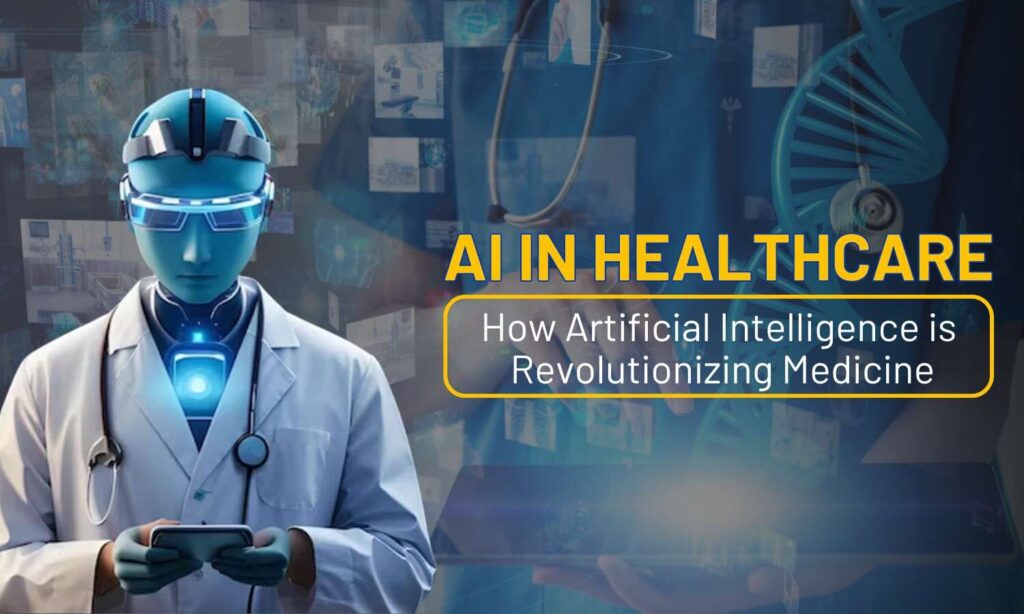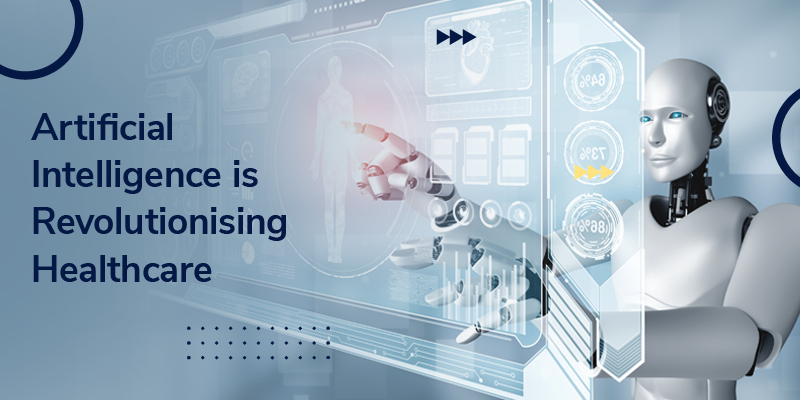Introduction: The AI Revolution in Healthcare
Artificial Intelligence (AI) is transforming the medical field, enabling faster diagnosis, personalized treatments, and improved patient outcomes. From AI-powered chatbots to advanced robotic surgeries, technology is making healthcare more efficient and accessible.
How AI is Changing Healthcare
AI is being used in various areas of healthcare, including:
1. Disease Diagnosis: AI can analyze medical scans and detect diseases like cancer faster than human doctors.
2. Predictive Analytics: AI models predict disease risks based on a patient’s health data.
3. Personalized Treatment: AI helps tailor treatments based on an individual’s genetic makeup.
4. Drug Discovery: AI accelerates the development of new medicines.
5. Healthcare Automation: AI chatbots and virtual assistants improve patient care and hospital management.

Real-World Examples of AI in Medicine
AI is already making a difference in healthcare:
– IBM Watson Health: Uses AI to assist doctors in diagnosing complex diseases.
– Google’s DeepMind: Developed an AI that detects eye diseases with 94% accuracy.
– Robot-Assisted Surgery: AI-driven robots like Da Vinci assist surgeons with precision.
Challenges and Ethical Concerns
While AI offers huge benefits, challenges remain:
– Data Privacy Risks: Handling sensitive patient data requires strict security.
– Bias in AI Models: AI systems can be biased if trained on incomplete datasets.
– Regulatory Approval: AI medical tools must meet healthcare regulations before widespread adoption.
The Future of AI in Healthcare
The AI revolution in healthcare is just beginning. In the next decade, we can expect:
– AI-powered hospitals with automated patient monitoring.
– Nanotechnology-driven AI treatments that target diseases at the molecular level.
– Widespread use of AI in mental health therapy through virtual counseling bots.
Conclusion: A Smarter, Healthier Future
AI is shaping the future of medicine, making healthcare more accessible, efficient, and precise. While challenges exist, the benefits of AI in healthcare are undeniable. As technology evolves, AI will play an even bigger role in improving human health worldwide.


